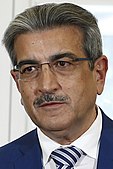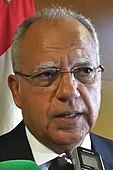2015 Canarian regional election
| |||||||||||||||||||||||||||||||||||||||||||||||||||||||||||||||||||||||||||||||||||||||||||||||||||||
All 60 seats in the Parliament of the Canary Islands 31 seats needed for a majority | |||||||||||||||||||||||||||||||||||||||||||||||||||||||||||||||||||||||||||||||||||||||||||||||||||||
|---|---|---|---|---|---|---|---|---|---|---|---|---|---|---|---|---|---|---|---|---|---|---|---|---|---|---|---|---|---|---|---|---|---|---|---|---|---|---|---|---|---|---|---|---|---|---|---|---|---|---|---|---|---|---|---|---|---|---|---|---|---|---|---|---|---|---|---|---|---|---|---|---|---|---|---|---|---|---|---|---|---|---|---|---|---|---|---|---|---|---|---|---|---|---|---|---|---|---|---|---|---|
| Opinion polls | |||||||||||||||||||||||||||||||||||||||||||||||||||||||||||||||||||||||||||||||||||||||||||||||||||||
| Registered | 1,661,272 | ||||||||||||||||||||||||||||||||||||||||||||||||||||||||||||||||||||||||||||||||||||||||||||||||||||
| Turnout | 931,876 (56.1%) | ||||||||||||||||||||||||||||||||||||||||||||||||||||||||||||||||||||||||||||||||||||||||||||||||||||
| |||||||||||||||||||||||||||||||||||||||||||||||||||||||||||||||||||||||||||||||||||||||||||||||||||||
 Constituency results map for the Parliament of the Canary Islands | |||||||||||||||||||||||||||||||||||||||||||||||||||||||||||||||||||||||||||||||||||||||||||||||||||||
| |||||||||||||||||||||||||||||||||||||||||||||||||||||||||||||||||||||||||||||||||||||||||||||||||||||
The 2015 Canarian regional election was held on Sunday, 24 May 2015, to elect the 9th Parliament of the Autonomous Community of the Canary Islands. All 60 seats in the Parliament were up for election. The election was held simultaneously with regional elections in twelve other autonomous communities and local elections all throughout Spain.
Overview
Electoral system
The Parliament of the Canary Islands was the devolved, unicameral legislature of the autonomous community of the Canary Islands, having legislative power in regional matters as defined by the Spanish Constitution and the Canarian Statute of Autonomy, as well as the ability to vote confidence in or withdraw it from a regional president.[1] Voting for the Parliament was on the basis of universal suffrage, which comprised all nationals over 18 years of age, registered in the Canary Islands and in full enjoyment of their political rights. Additionally, Canarians abroad were required to apply for voting before being permitted to vote, a system known as "begged" or expat vote (Spanish: Voto rogado).[2]
The 60 members of the Parliament of the Canary Islands were elected using the D'Hondt method and a closed list proportional representation, with an electoral threshold of 30 percent of valid votes—which included blank ballots—being applied in each constituency. Alternatively, parties could also enter the seat distribution as long as they reached six percent regionally. Seats were allocated to constituencies, corresponding to the islands of El Hierro, Fuerteventura, Gran Canaria, La Gomera, La Palma, Lanzarote and Tenerife, with each being allocated a fixed number of seats:[1]
| Seats | Constituencies |
|---|---|
| 15 | Gran Canaria, Tenerife |
| 8 | La Palma, Lanzarote |
| 7 | Fuerteventura |
| 4 | La Gomera |
| 3 | El Hierro |
Election date
The term of the Parliament of the Canary Islands expired four years after the date of its previous election, with elections to the Parliament being fixed for the fourth Sunday of May every four years. The previous election was held on 22 May 2011, setting the election date for the Parliament on Sunday, 24 May 2015.[1][3][4]
The Parliament of the Canary Islands could not be dissolved before the date of expiry of parliament except in the event of an investiture process failing to elect a regional president within a two-month period from the first ballot. In such a case, the Parliament was to be automatically dissolved and a fresh election called, with elected deputies merely serving out what remained of their four-year terms.[1]
Parties and candidates
The electoral law allowed for parties and federations registered in the interior ministry, coalitions and groupings of electors to present lists of candidates. Parties and federations intending to form a coalition ahead of an election were required to inform the relevant Electoral Commission within ten days of the election call, whereas groupings of electors needed to secure the signature of at least one percent of the electorate in the constituencies for which they sought election, disallowing electors from signing for more than one list of candidates.[4]
Below is a list of the main parties and electoral alliances which contested the election:
| Candidacy | Parties and alliances |
Candidate | Ideology | Previous result | Gov. | Ref. | |||
|---|---|---|---|---|---|---|---|---|---|
| Votes (%) | Seats | ||||||||
| PP | List
|

|
Australia Navarro | Conservatism Christian democracy |
31.94% | 21 | [5] | ||
| CCa–PNC | List
|

|
Fernando Clavijo | Regionalism Canarian nationalism Centrism |
24.94% | 21 | [6] | ||
| PSOE | List |

|
Patricia Hernández | Social democracy | 20.98% | 15 | [7] | ||
| NCa | List
|

|
Román Rodríguez | Canarian nationalism Social democracy |
9.07% | 3 | [8] [9] [10] | ||
| Podemos | List
|

|
Noemí Santana | Left-wing populism Direct democracy Democratic socialism |
New party | [11] | |||
| Cs | List |

|
Melisa Rodríguez | Liberalism | New party | [12] | |||
| ASG | List
|

|
Casimiro Curbelo | Insularism Social democracy |
New party | [13] | |||
Opinion polls
The table below lists voting intention estimates in reverse chronological order, showing the most recent first and using the dates when the survey fieldwork was done, as opposed to the date of publication. Where the fieldwork dates are unknown, the date of publication is given instead. The highest percentage figure in each polling survey is displayed with its background shaded in the leading party's colour. If a tie ensues, this is applied to the figures with the highest percentages. The "Lead" column on the right shows the percentage-point difference between the parties with the highest percentages in a poll. When available, seat projections determined by the polling organisations are displayed below (or in place of) the percentages in a smaller font; 31 seats were required for an absolute majority in the Parliament of the Canary Islands.
| Polling firm/Commissioner | Fieldwork date | Sample size | Turnout | LV | PPM | U | Lead | ||||||||||
|---|---|---|---|---|---|---|---|---|---|---|---|---|---|---|---|---|---|
| 2015 regional election | 24 May 2015 | — | 56.1 | 18.6 12 |
18.2 18 |
19.9 15 |
10.2 5 |
– | [a] | 0.9 0 |
2.2 0 |
[b] | 14.5 7 |
5.9 0 |
0.6 3 |
3.6 0 |
1.3 |
| NC Report/La Razón[p 1][p 2][p 3] | 17 May 2015 | 1,150 | ? | 20.9 12/13 |
19.2 14/16 |
17.8 12/13 |
8.9 4/5 |
– | – | – | – | [b] | 12.5 8/9 |
9.2 5/6 |
? 1/2 |
– | 1.7 |
| Hamalgama Métrica/La Opinión[p 4][p 5] | ?–16 May 2015 | ? | 61.9 | 18.7 11/14 |
19.4 15/18 |
18.4 13/14 |
8.7 4 |
– | – | – | – | [b] | 14.1 6/8 |
8.6 3/6 |
0.3 1/2 |
– | 0.7 |
| Perfiles/Diario de Avisos[p 6][p 7] | 4–14 May 2015 | 3,000 | ? | 20.0– 21.0 11/14 |
20.0– 21.0 16/19 |
18.0– 19.0 13/16 |
9.0– 10.0 3/5 |
– | – | – | – | [b] | 9.0– 10.0 5/6 |
9.0– 10.0 3/7 |
0.0– 1.0 2/3 |
4.0– 5.0 0 |
Tie |
| Focus Investigación[p 8][p 9] | 20 Apr 2015 | 6,840 | ? | 20.5 12/14 |
23.6 17/22 |
19.3 13/15 |
7.4 3/5 |
– | [a] | – | 4.7 | [b] | 12.1 6/8 |
7.0 2 |
– | – | 3.1 |
| Perfiles/Diario de Avisos[p 10][p 11][p 12] | 7–20 Apr 2015 | 3,000 | ? | 19.0– 20.0 13/15 |
18.0– 19.0 17 |
18.0– 19.0 13/15 |
7.0– 8.0 3/5 |
– | – | – | – | [b] | 10.0– 11.0 6 |
10.0– 11.0 5/7 |
0.0– 1.0 0/1 |
4.0– 5.0 0 |
1.0 |
| CIS[p 13][p 14] | 23 Mar–19 Apr 2015 | 1,723 | ? | 20.8 12/14 |
18.9 17 |
20.4 15/16 |
5.2 0 |
– | – | 0.7 0 |
4.1 0 |
[b] | 15.8 10 |
10.7 4/5 |
– | – | 0.4 |
| TSA/Canarias7[p 15][p 16] | 26 Mar–9 Apr 2015 | 2,779 | ? | 19.7 11/14 |
18.9 14/17 |
18.4 11/14 |
11.9 5/7 |
– | – | – | – | [b] | 11.1 5/6 |
9.3 5/6 |
0.5 1 |
4.1 0 |
0.8 |
| NC Report/La Razón[p 17][p 18][p 19] | 23 Mar–9 Apr 2015 | 1,150 | ? | 22.2 13/14 |
20.2 15/17 |
18.2 12/13 |
8.9 5/6 |
– | – | – | – | [b] | 11.8 7/8 |
7.1 4/5 |
? 1/2 |
– | 2.0 |
| Hamalgama Métrica/La Provincia [p 20][p 21][p 22] |
10–28 Nov 2014 | 2,400 | 62.4 | 24.2 14 |
21.2 16/18 |
18.8 10/11 |
8.6 4/6 |
[c] | 2.3 0 |
1.6 0 |
2.5 0 |
0.5 0 |
18.4 9/11 |
– | 0.6 2 |
– | 3.0 |
| 62.4 | 24.2 14/15 |
21.2 17/19 |
18.8 11/12 |
8.6 4/6 |
2.6 0 |
2.3 0 |
1.6 0 |
2.5 0 |
0.5 0 |
15.8 8/9 |
– | 0.6 2 |
– | 3.0 | |||
| 62.4 | 24.2 14/15 |
21.2 17/19 |
19.4 13/14 |
8.6 4/6 |
2.6 0 |
2.3 0 |
1.6 0 |
2.5 0 |
0.5 0 |
15.8 8/9 |
– | – | – | 3.0 | |||
| Llorente & Cuenca[p 23] | 31 Oct 2014 | ? | ? | ? 17/19 |
? 17/22 |
? 12/14 |
? 4/5 |
– | – | ? 2 |
– | – | ? 2/4 |
– | – | – | ? |
| Celeste-Tel/Diario de Avisos[p 24] | 4–14 Aug 2014 | 2,800 | 60.9 | 23.8 15 |
21.1 18 |
18.0 14 |
10.3 6 |
– | – | 1.2 0 |
2.2 0 |
– | 13.2 7 |
– | – | – | 2.7 |
| 2014 EP election[p 25] | 25 May 2014 | — | 35.0 | 23.4 (18) |
12.2 (10) |
22.2 (19) |
– | – | [a] | 6.9 (2) |
10.5 (6) |
– | 11.0 (5) |
1.4 (0) |
– | – | 1.2 |
| Celeste-Tel/Diario de Avisos[p 26] | 5–16 Apr 2014 | 3,200 | ? | 24.9 16 |
24.3 21 |
20.9 17 |
13.0 6 |
3.9 0 |
3.0 0 |
3.1 0 |
4.1 0 |
0.5 0 |
– | – | – | – | 0.6 |
| Focus Investigación/CC[p 27] | 7 Dec 2013 | 3,200 | ? | 20.5 14 |
22.4 19 |
20.0 17 |
? 4 |
– | – | – | 11.3 6 |
– | – | – | – | – | 1.9 |
| Hamalgama Métrica/La Provincia[p 28][p 29] | 25 Nov–5 Dec 2013 | 1,600 | 55.0 | 29.0 20 |
23.2 20 |
19.5 14/15 |
11.4 5/6 |
2.2 0 |
2.1 0 |
2.7 0 |
3.7 0 |
0.5 0 |
– | – | – | – | 5.8 |
| Demométrica/PSOE[p 30] | 21 Nov–4 Dec 2013 | 2,500 | ? | 23.3 13 |
24.9 21 |
22.7 17 |
10.0 6 |
– | – | – | 6.3 3 |
– | – | – | – | – | 1.6 |
| NC Report/La Razón[p 31][p 32] | 15 Oct–12 Nov 2013 | ? | ? | ? 17/18 |
? 23/25 |
? 14/15 |
? 3/4 |
– | – | – | ? 1/2 |
– | – | – | – | – | ? |
| NC Report/La Razón[p 33][p 34][p 35] | 15 Apr–10 May 2013 | 300 | ? | 27.6 18/19 |
26.7 22/24 |
19.7 14/15 |
? 3/4 |
– | – | – | ? 1/2 |
– | – | – | – | – | 0.9 |
| 2011 general election | 20 Nov 2011 | — | 59.6 | 48.0 (33) |
15.5 (9) |
24.9 (18) |
[d] | – | [a] | 2.6 (0) |
4.3 (0) |
– | – | – | – | – | 23.1 |
| 2011 regional election | 22 May 2011 | — | 58.9 | 31.9 21 |
24.9 21 |
21.0 15 |
9.1 3 |
2.1 0 |
2.1 0 |
1.0 0 |
0.8 0 |
0.5 0 |
– | – | – | – | 7.0 |
Results
Overall
 | ||||||
| Parties and alliances | Popular vote | Seats | ||||
|---|---|---|---|---|---|---|
| Votes | % | ±pp | Total | +/− | ||
| Spanish Socialist Workers' Party (PSOE) | 182,006 | 19.89 | –1.09 | 15 | ±0 | |
| People's Party (PP) | 170,129 | 18.59 | –13.35 | 12 | –9 | |
| Canarian Coalition–Canarian Nationalist Party (CCa–PNC) | 166,979 | 18.25 | –6.69 | 18 | –3 | |
| We Can (Podemos) | 133,044 | 14.54 | New | 7 | +7 | |
| New Canaries (NCa) | 93,634 | 10.23 | +1.81 | 5 | +3 | |
| Citizens–Party of the Citizenry (C's) | 54,375 | 5.94 | New | 0 | ±0 | |
| United (Unidos)1 | 32,868 | 3.59 | +1.66 | 0 | –1 | |
| Canaries Decides (IUC–LV–UP–ALTER)2 | 20,155 | 2.20 | –0.76 | 0 | ±0 | |
| Animalist Party Against Mistreatment of Animals (PACMA) | 11,296 | 1.23 | +0.93 | 0 | ±0 | |
| Union, Progress and Democracy (UPyD) | 7,819 | 0.85 | –0.15 | 0 | ±0 | |
| Canarian Nationalist Alternative (ANC) | 5,635 | 0.62 | –0.12 | 0 | ±0 | |
| Gomera Socialist Group (ASG) | 5,090 | 0.56 | New | 3 | +3 | |
| More for Telde (+xT) | 3,390 | 0.37 | New | 0 | ±0 | |
| Communist Party of the Canarian People (PCPC) | 1,861 | 0.20 | –0.06 | 0 | ±0 | |
| For a Fairer World (PUM+J) | 1,827 | 0.20 | +0.04 | 0 | ±0 | |
| Vox (Vox) | 1,814 | 0.20 | New | 0 | ±0 | |
| Movement for the Unity of the Canarian People (MUPC) | 1,777 | 0.19 | +0.05 | 0 | ±0 | |
| Zero Cuts (Recortes Cero) | 1,498 | 0.16 | New | 0 | ±0 | |
| Municipal Assemblies of Fuerteventura (AMF) | 1,447 | 0.16 | New | 0 | ±0 | |
| Blank Seats (EB) | 1,363 | 0.15 | New | 0 | ±0 | |
| Internationalist Solidarity and Self-Management (SAIn) | 330 | 0.04 | New | 0 | ±0 | |
| Blank ballots | 16,769 | 1.83 | –0.93 | |||
| Total | 915,106 | 60 | ±0 | |||
| Valid votes | 915,106 | 98.20 | +0.89 | |||
| Invalid votes | 16,770 | 1.80 | –0.89 | |||
| Votes cast / turnout | 931,876 | 56.09 | –2.82 | |||
| Abstentions | 729,396 | 43.91 | +2.82 | |||
| Registered voters | 1,661,272 | |||||
| Sources[14][15] | ||||||
Footnotes:
| ||||||
Distribution by constituency
| Constituency | PSOE | PP | CC–PNC | Podemos | NCa | ASG | ||||||
|---|---|---|---|---|---|---|---|---|---|---|---|---|
| % | S | % | S | % | S | % | S | % | S | % | S | |
| El Hierro | 22.1 | 1 | 17.1 | − | 41.8 | 2 | 6.7 | − | 6.5 | − | ||
| Fuerteventura | 17.4 | 2 | 13.6 | 1 | 28.1 | 3 | 12.2 | 1 | 6.7 | − | ||
| Gran Canaria | 17.5 | 3 | 20.4 | 4 | 6.2 | 1 | 17.0 | 3 | 18.4 | 4 | ||
| La Gomera | 16.4 | 1 | 10.3 | − | 10.5 | − | 8.8 | − | 5.9 | − | 43.0 | 3 |
| La Palma | 24.6 | 2 | 24.7 | 3 | 30.3 | 3 | 6.5 | − | 2.8 | − | ||
| Lanzarote | 21.0 | 2 | 13.0 | 1 | 22.2 | 3 | 14.7 | 1 | 8.3 | 1 | ||
| Tenerife | 22.0 | 4 | 17.5 | 3 | 27.6 | 6 | 13.4 | 2 | 3.4 | − | ||
| Total | 19.9 | 15 | 18.6 | 12 | 18.2 | 18 | 14.5 | 7 | 10.2 | 5 | 0.6 | 3 |
Notes
References
- Opinion poll sources
- ^ "El PP mantendría sin apoyos Castilla y León, Castilla-La Mancha, Murcia y La Rioja". La Razón (in Spanish). 17 May 2015.
- ^ "Islas Canarias: La coalición CC-PSOE necesitará otros apoyos para gobernar". La Razón (in Spanish). 17 May 2015.
- ^ "Islas Canarias. Encuesta mayo 2015" (PDF). La Razón (in Spanish). 17 May 2015. Archived from the original (PDF) on 4 March 2016.
- ^ "Triple empate en la recta final". La Opinión de Tenerife (in Spanish). 18 May 2015. Archived from the original on 20 May 2015.
- ^ "Estimación del voto al Parlamento de Canarias". La Opinión de Tenerife (in Spanish). 18 May 2015.[permanent dead link]
- ^ "CC gana, el PP sufre el mayor retroceso y entran con fuerza tres nuevos partidos". Diario de Avisos (in Spanish). 17 May 2015.
- ^ "CANARIAS, Mayo 2015. Sondeo Instituto Perfiles". Electograph (in Spanish). 17 May 2015.
- ^ "El PP se hunde y CC sería el más votado". Cadena SER (in Spanish). 20 April 2015.
- ^ "Una encuesta prevé la victoria de CC y la caída del PP a 13 escaños". El Día.es (in Spanish). 21 April 2015.
- ^ "Podemos y C's se perfilan como dos nuevos grupos del Parlamento". Diario de Avisos (in Spanish). 25 April 2015.
- ^ "La mayoría absoluta para un pacto de dos partidos se mueve entre uno o dos escaños". Diario de Avisos (in Spanish). 26 April 2015.
- ^ "CANARIAS, Abril 2015. Sondeo Instituto Perfiles". Electograph (in Spanish). 25 April 2015.
- ^ "Preelectoral elecciones autonómicas 2015. Comunidad Autónoma de Canarias (Estudio nº 3069. Marzo-Abril 2015)" (PDF). CIS (in Spanish). 7 May 2015.
- ^ "Sánchez se lanza al ataque como "única alternativa a la derecha"". La Vanguardia (in Spanish). 8 May 2015.
- ^ "Gobernar el Archipiélago entre dos partidos, casi imposible tras el 24-M". Diario de Avisos (in Spanish). 12 April 2015.
- ^ "CANARIAS, Abril 2015. Sondeo TSA". Electograph (in Spanish). 12 April 2015.
- ^ "El PP seguirá siendo el más votado en las CC AA pese a la caída en apoyos". La Razón (in Spanish). 20 April 2015.
- ^ "Islas Canarias: El binomio CC-PSOE aguanta resiste". La Razón (in Spanish). 20 April 2015.
- ^ "Islas Canarias. Encuesta marzo 2015" (PDF). La Razón (in Spanish). 20 April 2015. Archived from the original (PDF) on 4 March 2016.
- ^ "El pacto entre Coalición Canaria y el PP logra la mayoría para gobernar en 2015". La Provincia (in Spanish). 6 December 2014.
- ^ "El pacto entre Coalición Canaria y el PP logra la mayoría para gobernar en 2015". La Provincia (in Spanish). 6 December 2014.
- ^ "Encuesta Noviembre 2014". Hamalgama Métrica (in Spanish). 6 December 2014.
- ^ "El reparto del poder territorial en España en 2015" (PDF). desarrollando-ideas.com (in Spanish). 31 October 2014.
- ^ "CC, la fuerza con más escaños, el PP se hunde y el PSOE baja más". Diario de Avisos (in Spanish). 7 September 2014.
- ^ "Proyección del resultado de las europeas en los parlamentos autonómicos". El País (in Spanish). 31 May 2014.
- ^ "CC ganaría gracias al desplome del PP". Diario de Avisos (in Spanish). 2 June 2014.
- ^ "Un sondeo de CC refleja una victoria nacionalista, subida del PSOE y debacle del PP". Canarias7 (in Spanish). 7 December 2013. Archived from the original on 9 December 2013.
- ^ "PP y CC se mantienen como las fuerzas más votadas y empatan a 20 diputados". La Provincia (in Spanish). 7 December 2013.
- ^ "Estimación de voto al Parlamento de Canarias". La Provincia (in Spanish). 7 December 2013.
- ^ "Un sondeo del PSOE prevé que el PP canario perdería ocho escaños". RTVC (in Spanish). 23 February 2014.
- ^ "El PP ganaría de nuevo en 9 de 13 autonomías". La Razón (in Spanish). 18 November 2013.
- ^ "Encuesta autonómicas NC Report noviembre 2013" (PDF). La Razón (in Spanish). 18 November 2013. Archived from the original (PDF) on 3 March 2016. Retrieved 2 March 2015.
- ^ "El PP mantiene el poder autonómico". La Razón (in Spanish). 13 May 2013.
- ^ "Necesitaría pactos para gobernar en Navarra, Asturias, Canarias, Extremadura y Aragón". La Razón (in Spanish). 13 May 2013.
- ^ "El PP ganaría en la mayoría de las autonomías (La Razón)". Electómetro (in Spanish). 13 May 2013. Archived from the original on 4 March 2016.
- Other
- ^ a b c d Ley Orgánica 10/1982, de 10 de agosto, de Estatuto de Autonomía de Canarias (Organic Law 10) (in Spanish). 10 August 1982. Retrieved 12 September 2017.
- ^ Reig Pellicer, Naiara (16 December 2015). "Spanish elections: Begging for the right to vote". cafebabel.co.uk. Retrieved 17 July 2017.
- ^ Ley 7/2003, de 20 de marzo, de Elecciones al Parlamento de Canarias (Law 7) (in Spanish). 20 March 2003. Retrieved 12 September 2017.
- ^ a b Ley Orgánica 5/1985, de 19 de junio, del Régimen Electoral General (Organic Law 5) (in Spanish). 19 June 1985. Retrieved 28 December 2016.
- ^ "El PP regional propone a Australia Navarro como candidata a la Presidencia de Canarias" (in Spanish). Las Palmas de Gran Canaria: Europa Press. 5 March 2015. Retrieved 30 July 2022.
- ^ Lachica, Salvador (29 September 2014). "Clavijo acaba con el 'paulinato' y será candidato de CC en 2015". Canarias Ahora (in Spanish). Santa Cruz de Tenerife. Retrieved 30 July 2022.
- ^ "Patricia Hernández gana las primarias de Canarias y será la candidata de PSOE". La Vanguardia (in Spanish). Santa Cruz de Tenerife. EFE. 19 October 2014. Retrieved 30 July 2022.
- ^ "Nueva Canarias y XTF firman un acuerdo para ocupar el espacio de la izquierda social". Canarias Ahora (in Spanish). Santa Cruz de Tenerife. Europa Press. 15 May 2014. Retrieved 30 July 2022.
- ^ "Nueva Canarias aspira a convertirse en la primera fuerza política en Gran Canaria". Canarias Ahora (in Spanish). Las Palmas de Gran Canaria. EFE. 6 March 2015. Retrieved 30 July 2022.
- ^ "Nueva Canarias y Alternativa Democrática Gomera concurrirán juntos a las elecciones locales y autonómicas bajo las siglas de NC". Gomera Noticias (in Spanish). 8 April 2015. Retrieved 30 July 2022.
- ^ Suárez, Iván (1 April 2015). "Noemí Santana será la candidata de Podemos al Gobierno de Canarias". Canarias Ahora (in Spanish). Las Palmas de Gran Canaria. Retrieved 30 July 2022.
- ^ "Melisa Rodríguez, candidata de Ciudadanos (C's) al Gobierno de Canarias" (in Spanish). Santa Cruz de Tenerife: Europa Press. 18 March 2015. Retrieved 30 July 2022.
- ^ "Casimiro Curbelo pide su baja en el PSOE". Canarias Ahora (in Spanish). Las Palmas de Gran Canaria. 6 March 2015. Retrieved 30 July 2022.
- ^ "2015 Election Results". parcan.es (in Spanish). Parliament of the Canary Islands. Retrieved 30 September 2017.
- ^ "Elecciones al Parlamento de Canarias (1983 - 2019)". Historia Electoral.com (in Spanish). Retrieved 30 September 2017.






